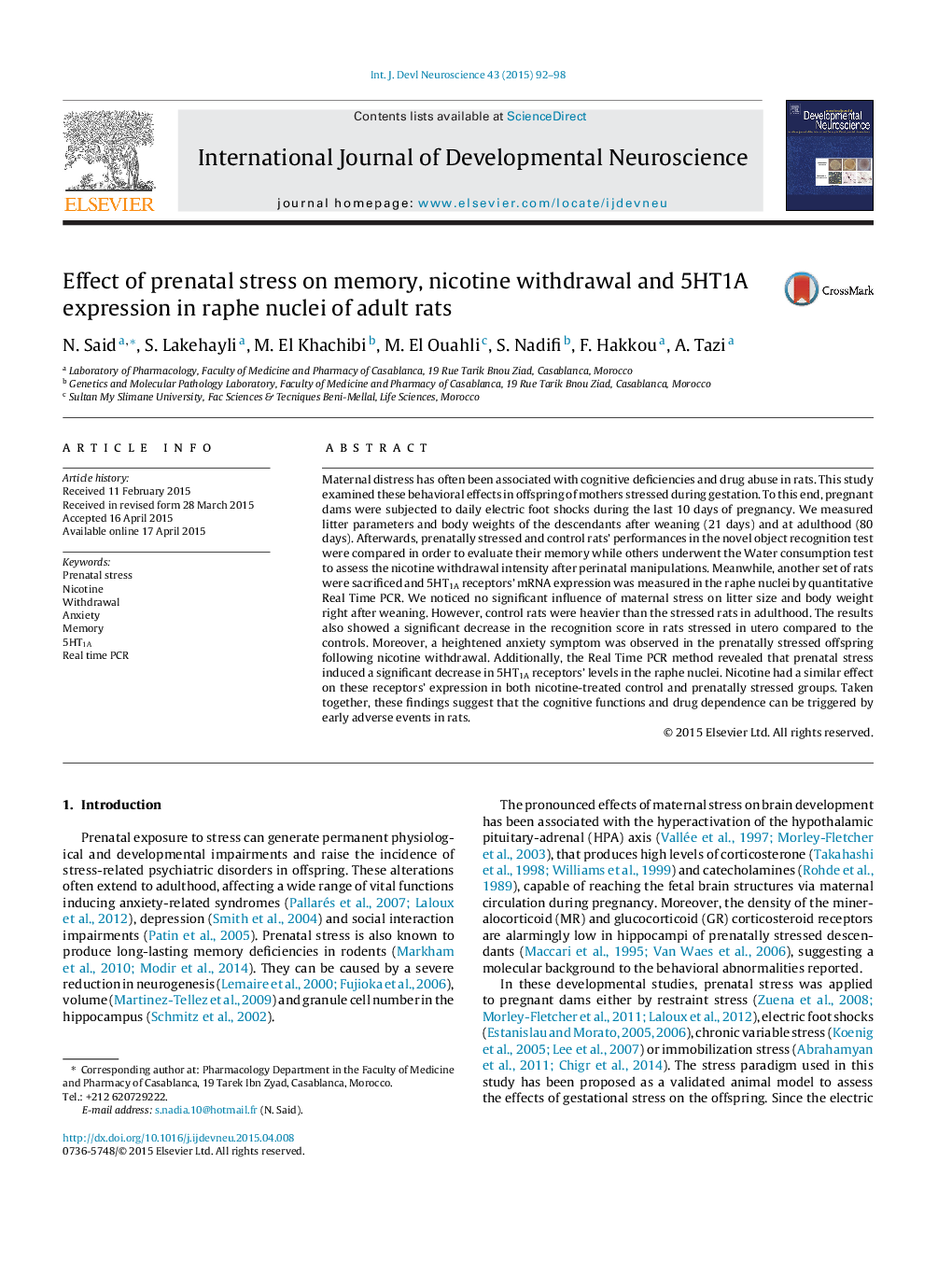| Article ID | Journal | Published Year | Pages | File Type |
|---|---|---|---|---|
| 2785717 | International Journal of Developmental Neuroscience | 2015 | 7 Pages |
•Prenatal stress alters recognition memory in adult offspring.•Prenatal stress intensifies nicotine withdrawal syndrome in PS adult rats.•Prenatal stress downregulates 5HT1A receptors’ mRNA expression in the raphe nuclei.•Chronic nicotine exposure reduces 5HT1A levels in the raphe nuclei.
Maternal distress has often been associated with cognitive deficiencies and drug abuse in rats. This study examined these behavioral effects in offspring of mothers stressed during gestation. To this end, pregnant dams were subjected to daily electric foot shocks during the last 10 days of pregnancy. We measured litter parameters and body weights of the descendants after weaning (21 days) and at adulthood (80 days). Afterwards, prenatally stressed and control rats’ performances in the novel object recognition test were compared in order to evaluate their memory while others underwent the Water consumption test to assess the nicotine withdrawal intensity after perinatal manipulations. Meanwhile, another set of rats were sacrificed and 5HT1A receptors’ mRNA expression was measured in the raphe nuclei by quantitative Real Time PCR. We noticed no significant influence of maternal stress on litter size and body weight right after weaning. However, control rats were heavier than the stressed rats in adulthood. The results also showed a significant decrease in the recognition score in rats stressed in utero compared to the controls. Moreover, a heightened anxiety symptom was observed in the prenatally stressed offspring following nicotine withdrawal. Additionally, the Real Time PCR method revealed that prenatal stress induced a significant decrease in 5HT1A receptors’ levels in the raphe nuclei. Nicotine had a similar effect on these receptors’ expression in both nicotine-treated control and prenatally stressed groups. Taken together, these findings suggest that the cognitive functions and drug dependence can be triggered by early adverse events in rats.
